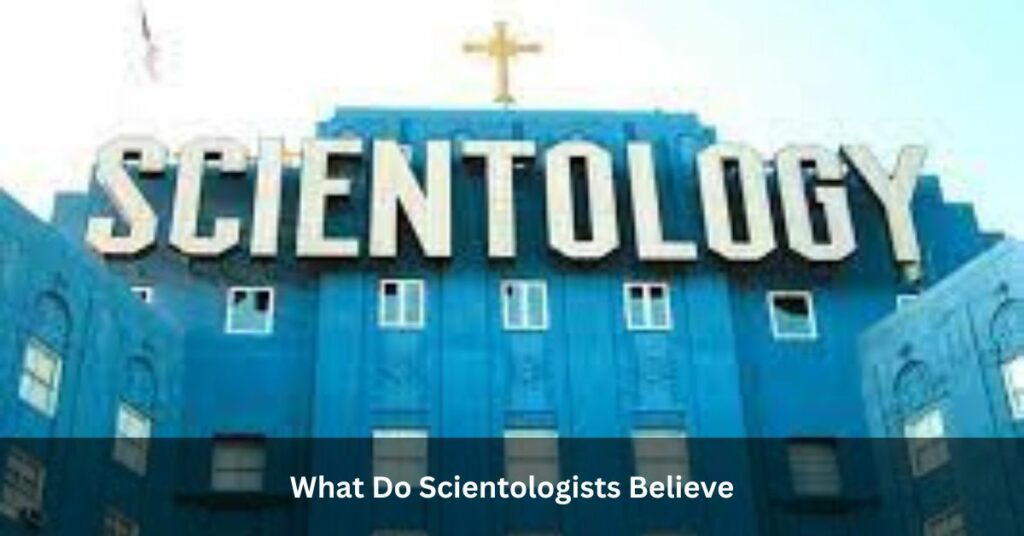Scientologists believe in an immortal soul called a “thetan,” spanning countless reincarnations, aiming to purify itself of negative experiences and achieve spiritual enlightenment through Scientology practices.
- What Do Scientologists Believe?
- How Do Scientologists Learn About Their Beliefs?
- What Is the Main Goal of Scientology?
- Why Do Scientologists Want to Remove “Engrams”?
- What Is The Operating Thetan Iii Course?
- Why Did L. Ron Hubbard Advise Secrecy?
- How Does Scientology Explain “Body Thetans”?
- FAQs:
- Conclusion:
What Do Scientologists Believe?
Scientologists believe in the existence of an immortal soul called a “thetan.” According to Scientology doctrine, thetans have traversed through numerous lifetimes, accumulating experiences that shape their spiritual journey.
Central to Scientology is the belief that these souls are capable of achieving higher levels of awareness and enlightenment through spiritual practices.
How Do Scientologists Learn About Their Beliefs?
Scientologists primarily learn about their beliefs through a series of courses and teachings developed by L. Ron Hubbard, the founder of Scientology. These teachings are found in various writings and recorded lectures, forming the core doctrine of the religion. As individuals progress through the courses, they gain deeper insights into Scientology’s principles and practices.
Scientology’s teachings are disseminated through study materials, lectures, and practical exercises provided in Scientology churches and organizations worldwide. These materials are designed to guide practitioners through a systematic exploration of Scientology principles, with the aim of achieving spiritual growth and personal transformation.
What Is the Main Goal of Scientology?
The main goal of Scientology is to attain spiritual freedom and enlightenment. Scientologists seek to rid themselves of negative experiences, known as “engrams,” which are believed to hinder spiritual growth. By purging these engrams, individuals aim to achieve a state of higher consciousness and self-awareness.
Why Do Scientologists Want to Remove “Engrams”?
Engrams are perceived as harmful experiences stored in the subconscious mind, causing emotional and physical distress. Scientologists seek to remove engrams through auditing—a process of self-examination and counseling—aimed at identifying and addressing these negative experiences. By eliminating engrams, individuals can achieve greater mental clarity and spiritual well-being.

1. Can You Explain What “Implants” Are in Scientology?
In Scientology, implants are negative influences or false beliefs implanted in the mind by external forces. These implants are thought to obscure one’s true spiritual nature and inhibit personal growth. Scientologists work to overcome implants through spiritual practices and self-awareness, aiming to reclaim their innate spiritual potential.
2. What Does Scientology Say About Heaven and Christ?
Scientology offers a unique perspective on concepts such as heaven and Christ. According to Scientology teachings, the concept of heaven is considered a false illusion created through implants. Similarly, the figure of Christ is viewed differently, with Hubbard suggesting that traditional religious narratives may not align with Scientology’s cosmology.
What Is The Operating Thetan Iii Course?
The Operating Thetan III (OT III) course is an advanced level of Scientology training aimed at addressing deep-seated spiritual issues. It delves into the story of Xenu, a figure from Scientology mythology, and the impact of his actions on the spiritual realm. OT III is regarded as a pivotal stage in a Scientologist’s journey toward spiritual enlightenment.
Why Did L. Ron Hubbard Advise Secrecy?
Hubbard advised secrecy to prevent Scientology’s teachings from being misunderstood or misinterpreted by outsiders. He believed that revealing advanced spiritual concepts to those unprepared for them could lead to confusion or skepticism. By keeping certain teachings confidential, Hubbard aimed to ensure that individuals approached Scientology with an open mind and proper understanding.
How Does Scientology Explain “Body Thetans”?
Body thetans are believed to be spiritual entities that have attached themselves to individuals, causing spiritual and emotional disturbances. Scientologists address body thetans through auditing and spiritual practices, aiming to release them from their influence and achieve spiritual freedom.
Hubbard claimed to have experienced numerous past lives, recounting tales of interplanetary adventures and ancient civilizations. He suggested that his own experiences informed his understanding of Scientology’s teachings, providing insights into the nature of the soul and the universe.
FAQs:
1. Is Scientology a recognized religion?
Yes, Scientology is recognized as a religion in many countries and has a significant following worldwide. It has been granted tax-exempt status in several countries, including the United States.
2. How do Scientologists practice their beliefs?
Scientologists practice their beliefs through a combination of study, counseling (known as auditing), and participation in church activities. They may also engage in community service and outreach efforts.
3. Are there any famous Scientologists?
Yes, there are several well-known individuals who have publicly identified as Scientologists, including actors Tom Cruise and John Travolta. However, Scientology’s membership includes people from all walks of life, not just celebrities.
Conclusion:
In summary,
Scientology offers a unique perspective on spirituality, emphasizing personal growth and enlightenment. Through teachings developed by L. Ron Hubbard, Scientologists seek to achieve spiritual freedom by addressing negative experiences and uncovering their true spiritual nature.
While Scientology’s beliefs may differ from traditional religious doctrines, they provide adherents with a framework for understanding themselves and their place in the universe.
Read:
- VenturesGet.net – Essential Tools for Startup Success in 2025!
- Rena Monrovia When You Transport Something By Car …-Essential Tips
- West vs East Match Player Stats- An In-Depth Analysis!
- Igagony -The Secret Way To View Instagram Stories Anonymously
- GMFU Meaning- The Go-To Acronym for Frustration Online!


